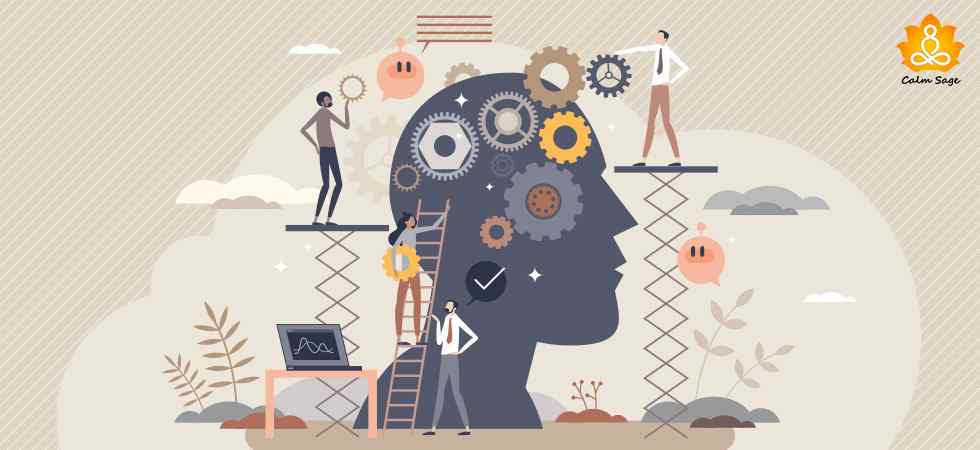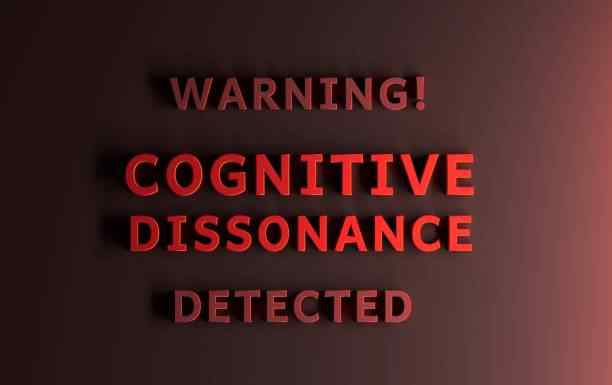What is Cogitive Dissonance? How Does it Affect Us?

Cognitive dissonance can simply be defined as a condition where your mind feels conflicted because your actions do not line up with your value system. Your mind is in a very uncomfortable space as it experiences a lot of contradictions in your value system.
For example, you worked hard an entire week, and while grocery shopping you pick up a box of brownies. You convince yourself that you’ll only have it as a treat but end up finishing the entire box through the weekend.
And now, you are completely annoyed at yourself because you aimed to work hard so that you can be back in shape but you did the complete opposite. That’s when you experience cognitive dissonance, your value system tells you to just consume them as a treat but your actions tell a different story.
Want to know more about cognitive dissonance? Let’s understand cognitive dissonance better so that we know why it matters so much…
Let’s Define Cognitive Dissonance

According to Leon Festinger (a social psychologist), cognitive dissonance is the discomfort or stress one goes through when he/she has two contradicting cognitions working at the same time. He is also the one who introduced the cognitive dissonance theory.
According to Festinger, our cognitions play an important role in making us the way we are. These cognitive influences all aspects of our lives. Some of the main cognitions one processes are listed below;
- Value system/moral values/beliefs
- Thoughts and thought processes
- Attitude towards life
- Actions and behaviors
Our decision-making, problem-solving, and most of our actions and practicality are governed by our cognition. When these cognitions do not line out with one another, you’re most likely to go into a distressing state of mind known as cognitive dissonance.
Let’s Explore The Signs Of Cognitive Dissonance

Well, it’s not rocket science to recognize cognitive dissonance but sometimes we might confuse it with other events in our lives. It’s important to know your problem well if you are seeking a permanent solution.
Knowing the signs of cognitive dissonance with help you understand the root cause of your stress. It will also help you come up with effective strategies to deal with the discomfort cognitive dissonance causes.
Here’s a list of signs that point toward cognitive dissonance;
- You have an unforgettable feeling before initiating something or making some decisions
- You’re trying to justify your actions
- You’re ashamed of your actions and often try to hide them from others
- You’re in a constant state of guilt because of your actions
- You fall for the social pressure and end up doing things just so that you don’t miss out on anything (FOMO)
What Causes Cognitive Dissonance & How Does It Impact Us?
In my understanding, the causes of cognitive dissonance are very situational. It completely depends on the situation you are in. you react to different situations differently, therefore, different situations can lead to different conflicts leading to cognitive dissonance.
Let’s look at some of the situational causes of cognitive dissonance and see how it might impact us;
Causes;
- When you are forced to comply or agree with something your value system doesn’t aline with. For example, you become a part of a group that bullies other people just for fun.
- When you are introduced to new information. Our value system is based on the information we have about the world, any new information that contradicts our existing information can cause cognitive dissonance.
- When you face a dilemma you’re more likely to experience cognitive dissonance. We all make several decisions in a day but some decisions put us in a dilemma. No matter what you choose you’ll always wonder about the one you didn’t choose and experience cognitive dissonance.
Impacts:
- It makes us adapt to attitudes that help in reducing the discomfort caused by cognitive dissonance.
- Develop beliefs that simply justify our actions. It can involve developing negative beliefs and convenience-based thought-process
- It makes you build a fake persona for the people around you and hide your true self. It encourages lying and cheating others just so your true intentions are not revealed
- It disturbed your ability to think right or think critically. Your thoughts now focus on easing the dissonance and not overcoming it
- It paves way for severe mental health conditions and strong negative emotions like guilt, shame, anxiety, regret, depression, embarrassment, etc.
How Can You Overcome Cognitive dissonance?

Cognitive dissonance has a lot to do with your thoughts, actions, and values and the interaction between them. If you have been struggling with the negative impact of cognitive dissonance and wish to break out of it, here’s what you can do;
- Rectify faulty actions: cognitive dissonance occurs when your actions fail to resonate with your value system. When you know what’s causing the discomfort, make sure you eliminate the root cause. Focus on your actions and make sure you don’t go against your values and beliefs.
- Replace old information with new: we are human and we are in a constant state of evolution. Make sure you always have space for new information. Sometimes we hold beliefs based on incomplete information, when you get new information makes way for new changes and practice acceptance.
- Let your perceptions have a huge spectrum: you must make space for different points of view and values. Your world is created by your perceptions, make sure you don’t limit your perception, or else you’ll be leading a limited life.
That’s All Folks!
I hope you found this blog about cognitive dissonance helpful, interesting, and informative. Do share this blog with your friends and family because cognitive dissonance is something that we all often face but rarely know how to deal with it.
Thanks for reading.
Take care and stay safe.




















